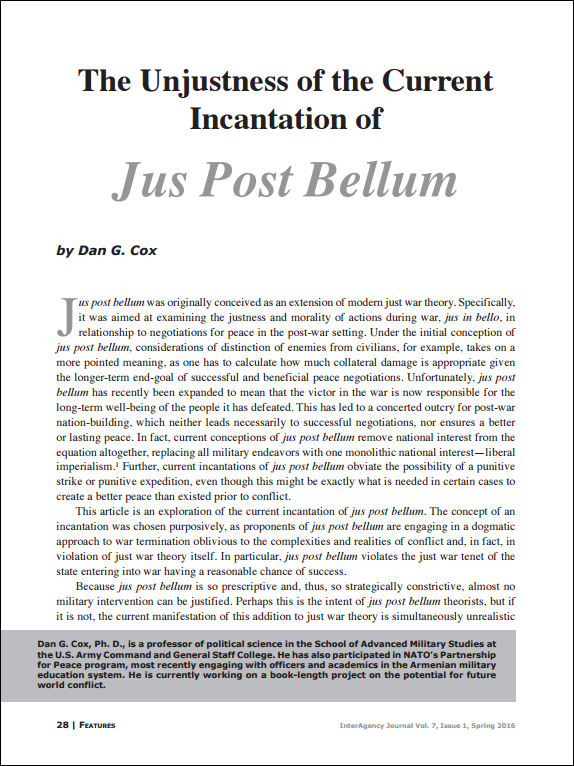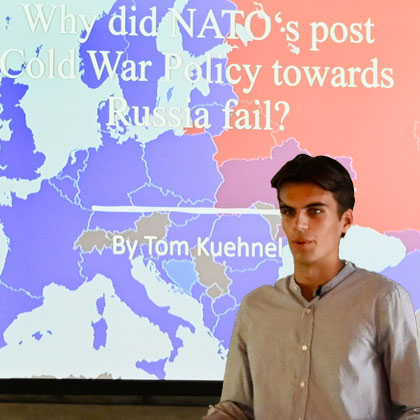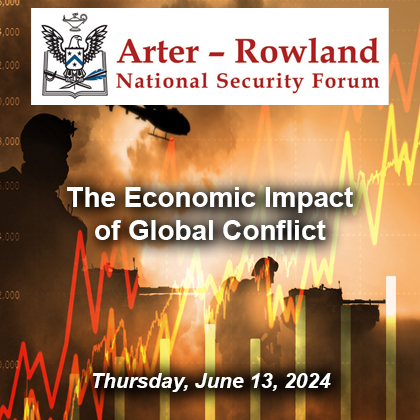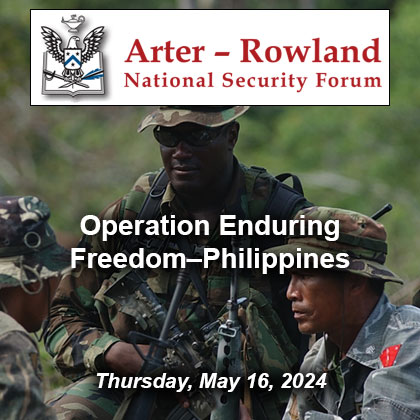Featured Article: The Unjustness of the Current Incantation of Jus Post Bellum
Featured article:
The Unjustness of the Current Incantation of Jus Post Bellum
by Dan G. Cox
Jus post bellum was originally conceived as an extension of modern just war theory. Specifically, it was aimed at examining the justness and morality of actions during war, jus in bello, in relationship to negotiations for peace in the post-war setting. Under the initial conception of jus post bellum, considerations of distinction of enemies from civilians, for example, takes on a more pointed meaning, as one has to calculate how much collateral damage is appropriate given the longer-term end-goal of successful and beneficial peace negotiations. Unfortunately, jus post bellum has recently been expanded to mean that the victor in the war is now responsible for the long-term well-being of the people it has defeated. This has led to a concerted outcry for post-war nation-building, which neither leads necessarily to successful negotiations, nor ensures a better or lasting peace. In fact, current conceptions of jus post bellum remove national interest from the equation altogether, replacing all military endeavors with one monolithic national interest—liberal imperialism. Further, current incantations of jus post bellum obviate the possibility of a punitive strike or punitive expedition, even though this might be exactly what is needed in certain cases to create a better peace than existed prior to conflict.
This article is an exploration of the current incantation of jus post bellum. The concept of an incantation was chosen purposively, as proponents of jus post bellum are engaging in a dogmatic approach to war termination oblivious to the complexities and realities of conflict and, in fact, in violation of just war theory itself.
Read the full article
The Unjustness of the Current Incantation of Jus Post Bellum PDF
Download the complete edition
IAJ 7-1 (Spring 2016) PDF
IAJ 7-1 (Spring 2016) ePub
Dan G. Cox, Ph. D., is a professor of political science in the School of Advanced Military Studies at the U.S. Army Command and General Staff College. He has also participated in NATO’s Partnership for Peace program, most recently engaging with officers and academics in the Armenian military education system. He is currently working on a book-length project on the potential for future world conflict.

Posted: November 1, 2016 by Simons Center
READ THE LATEST UPDATES FROM THE SIMONS CENTER
"*" indicates required fields


